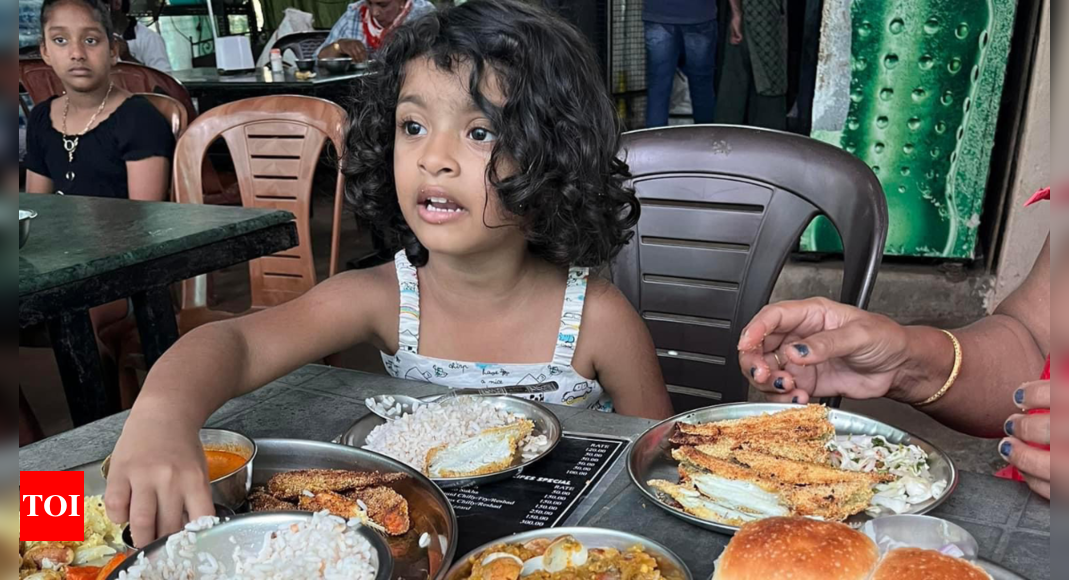Advocates of baby-led weaning are moving away from purees and promoting the practice of letting infants feed themselves finger foods to foster a positive relationship with food as they grow.
On a weekend evening, Shweta and Sunil Sharma, residents of Faridabad, are dining at a Mughlai restaurant with their children. While their four-year-old son, Sharav, indulges in butter naan and paneer makhani, their eighteen-month-old daughter, Saanvi, sits in a high chair dipping bites of aloo paratha in curd. She skillfully uses a spoon to scoop up the curd, savoring each bite with a joyful smile. Nearby, another family’s elder child is engrossed in cartoons on an iPad, while the mother tries to feed him, and a nanny struggles to get the younger child to eat fries. Observing this scene, Shweta, enjoying her soup peacefully, takes pride in her parenting choices.
Shweta embraced the concept of baby-led weaning (BLW) for her children, a modern approach to introducing solid foods to infants. Unlike traditional weaning methods that involve spoon-feeding pureed foods, BLW advocates offer a variety of finger foods to their children starting at six months old, allowing them to explore self-feeding.
The term “baby-led weaning” was coined by Gill Rapley, a British public health nurse and lactation counselor, in 2005. She introduced this method as a way to raise independent and content eaters, a philosophy that resonated with parents globally and gained popularity in various countries, including the US, Europe, and New Zealand. In India, BLW has garnered a growing following, with online support groups like BLW-India and Traditional Weaning India facilitating discussions and shared experiences among parents.
One fundamental principle of BLW is avoiding commercial baby foods and instead offering infants food from the family table, ensuring it is age-appropriate and nutritious. Parents are encouraged to provide meals without distractions and allow children to regulate their own intake, promoting a healthy relationship with food from an early age.
While BLW advocates emphasize the benefits of this approach, some parents and healthcare providers express concerns about potential choking hazards and nutritional adequacy. However, proponents argue that when practiced correctly, BLW is safe and can help children develop healthy eating habits and autonomy around food.
Despite varying opinions on BLW, parents like Shweta and Michelle Noronha have found success in this method, witnessing their children’s development into confident and adventurous eaters. While challenges like messy mealtimes and family skepticism may arise, the rewards of watching children explore and enjoy food independently make the journey worthwhile for many families.

